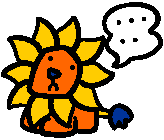
----------------------------------------------------
#01 そもそも動物の権利の問題というのは何なのですか?
私に何の関係があると言うのですか?
----------------------------------------------------
動物には、人から危害を加えられたり虐待されたり搾取されたりする
ことなくその本来の性質に従い生きる資格があるというのが動物の権利
運動の基本的な考え方です。これは、利用している間、あるいは殺して
食べるまでの間は動物を優しく扱うべきだとだけ言うのよりもさらに踏
み込んだ考え方です。
動物の権利運動の基本理念は、動物には人間から残虐な行為や搾取をさ
れない権利があるというものです。その点に関しては人間がそうした権
利を有するのと同様です。人間とは種が違うことを根拠に動物の権利を
認めようとしないのは「種差別(スピーシシズム)」(*1)に当たる
と考えます。
動物の権利運動をしている人々は人間どおしの尊重や思いやりといった
ものを種の壁を超えて動物にも--人間同様、痛みや恐怖や飢えや乾きや
寂しさや家族の情愛を感じることのできる存在である動物にも--広げよ
うと努力しています。
こうした考え方を実行するにあたり私達の多くはもはや工場畜産や動物
実験や娯楽のために動物を利用することを支持することは出来ないとい
いう結論に達しました。
一方では動物の権利を支持する人の間でも議論が分かれている問題もあ
ります。例えば、動物に危害を加えてもなおかつ正当と認められる調査
や研究が存在し得るか、権利を与える種と与えない種の境界線をどこに
引くべきなのか、いかなる場合において市民的不服従(*2)を行うこ
とが適切なのか、等です。
しかしながら、こうした意見が分かれる可能性がある問題も私達を結び
つけている変わることのない原則を揺るがすことはありません。私達を
結びつけている原則とは人間以外の動物が受けている痛みや苦しみに対
する同情と関心です。
このFAQの主な目的のひとつは現状を正当化しようとする一般的な意
見に対し反論することです。こうした正当化の論理によって私達は我々
の社会がいかにシステマティックに動物を虐待し搾取しているかに気付
かされました。そうした「正当化」は我々から良心の呵責という重荷を
取り去るのには役立ちますがこのFAQではそれが我々が動物にもたら
している害悪の言い訳になり得るものではないことを明らかにしようと
しています。
このFAQで扱っている範囲を超える更に詳細な論拠は以下の3冊の動
物の権利運動における名著から知ることができます。
The Case for Animal Rights, Tom Regan (ISBN 0-520-05460-1)
In Defense of Animals, Peter Singer (ISBN 0-06-097044-8)
Animal Liberation, Peter Singer (ISBN 0-380-71333-0, 2nd Ed.)
*訳注)
'In Defense of Animals' の翻訳は『動物の権利』
(ピーター ・シンガー編/戸田 清訳)
「技術と人間」より出版されましたが現在は絶版。
'Animal Liberation' の翻訳は『動物の解放』
(ピーター・シンガー著/戸田 清訳)
「技術と人間」より出版された後、現在は改訂版が
「人文書院」より出版されています。
'The Case for Animal Rights' については本邦未訳です。
この運動における、レーガン氏やシンガー氏の貢献は高く評価されて
います。しかし、レーガン氏やシンガー氏が運動の根本的動機を哲学的
アプローチから説明したことには異論も出ています。現在、動物の権利
運動に携わる人々の多くは、思いやりこそが、この運動における最も適
切な活力源であることを強調しています。
「どうしてそんな事を気にしなければいけないのだ?」と言われる方に
対しては私達は以下の理由をあげる事が出来ます。
◆人は苦痛を最小限にするように心がけるべきだから
◆人は思いやりの気持ちを大切にするべきだから
◆人は人間性がより健康なものになることを願うから
◆人は飢えた人や栄養不良の人のことを気にかけるから
◆人は地球の生態系の急激な破壊を避けたいと思うから
◆人は動物の種を守りたいと思うから
◆人は自然環境を保全したいと願うから
これらの点と動物の権利運動がめざすものとの関係は明白なものとは言
えないかもしれませんがこの先、その関係を明らかにしたいと思います
のでどうぞ読み進んで下さい。
DG
動物が専制政治の手によってしか奪うことの出来ない様な権利を手
にする日がいつか来ることであろう。
ジェレミー・ベンサム(哲学者)
猫だろうが犬だろうが人間だろうが命は命である。命であるという
点においては猫と人間の間に違いなどない。違いがあるという発想
は人間が自分の利益を守るために出てきたものだ。
スリ・オウロビンド(詩人、哲学者)
非暴力はすべての進化の目標である最も高度な倫理へとつながる。
我々が他の生き物を傷つけることをやめないかぎり、我々は野蛮人
のままである。
トーマス・エジソン(発明家)
動物を殺すということが今、人を殺すことに対して見るのと同じ様
な目で見られる様になる日がいつか来るであろう。
レオナルド・ダ・ビンチ(芸術家、科学者)
参照:
#2、
#3、
#26、
#87、
#88、
#89、
#90、
#91
訳注)
*1 種差別(スピーシシズム) speciesism
1973年に心理学者のリチャード・ライダーが作った用語。
人間と種が違うことを根拠に人間に対するのと異なった扱いを
することを正当化する態度を指す。
人種差別 (racism) や性差別 (sexism) といった単語と同
じやり方で作られているこの言葉には、種による差別が、人種
差別や性差別と同様に無意味で根拠がないものであることを明
らかにしようとする意図がある。
ピーター・シンガーが『動物の解放』(Animal Liberation)
の中でこの言葉を使用したことで、広く知れ渡るようになった。
*2 市民的不服従(civil disobedience)
政府の要求や命令に従うことの拒否、特に政府側の譲歩を引き
出すために行う非暴力的・集団的な反抗;納税拒否など。
もともとはソローが同名の論文(1849)で、個人の良心に従うこ
とを国家に対する義務に優先させ、そのために違法となる場合
はそれに対する罰をも甘受することなどを述べたもの。

...............



-----------------------
#1 What is all this Animal Rights (AR) stuff and why should
it concern me?
-----------------------
The fundamental principle of the AR movement is that nonhuman animals
deserve to live according to their own natures, free from harm, abuse, and
exploitation. This goes further than just saying that we should treat
animals well while we exploit them, or before we kill and eat them. It
says animals have the RIGHT to be free from human cruelty and
exploitation, just as humans possess this right. The withholding of this
right from the nonhuman animals based on their species membership is
referred to as "speciesism".
Animal rights activists try to extend the human circle of respect and
compassion beyond our species to include other animals, who are also
capable of feeling pain, fear, hunger, thirst, loneliness, and kinship.
When we try to do this, many of us come to the conclusion that we can no
longer support factory farming, vivisection, and the exploitation of
animals for entertainment. At the same time, there are still areas of
debate among animal rights supporters, for example, whether ANY research
that harms animals is ever justified, where the line should be drawn for
enfranchising species with rights, on what occasions civil disobedience
may be appropriate, etc. However, these areas of potential disagreement do
not negate the abiding principles that join us: compassion and concern
for the pain and suffering of nonhumans.
One main goal of this FAQ is to address the common justifications that
arise when we become aware of how systematically our society abuses and
exploits animals. Such "justifications" help remove the burden from our
consciences, but this FAQ attempts to show that they do not excuse the
harm we cause other animals. Beyond the scope of this FAQ, more detailed
arguments can be found in three classics of the AR literature.
The Case for Animal Rights, Tom Regan (ISBN 0-520-05460-1)
In Defense of Animals, Peter Singer (ISBN 0-06-097044-8)
Animal Liberation, Peter Singer (ISBN 0-380-71333-0, 2nd Ed.)
While appreciating the important contributions of Regan and Singer, many
animal rights activists emphasize the role of empathetic caring as the
actual and most appropriate fuel for the animal rights movement in
contradistinction to Singer's and Regan's philosophical rationales. To the
reader who says "Why should I care?", we can point out the following
reasons:
One cares about minimizing suffering.
One cares about promoting compassion in human affairs.
One is concerned about improving the health of humanity.
One is concerned about human starvation and malnutrition.
One wants to prevent the radical disruption of our planet's ecosystem.
One wants to preserve animal species.
One wants to preserve wilderness.
The connections between these issues and the AR agenda may not be obvious.
Please read on as we attempt to clarify this.
DG
The day may come when the rest of the animal creation may acquire those
rights which never could have been withholden from them but by the hand
of tyranny.
Jeremy Bentham (philosopher)
Life is life--whether in a cat, or dog or man. There is no difference
there between a cat or a man. The idea of difference is a human
conception for man's own advantage...
Sri Aurobindo (poet and philosopher)
Non-violence leads to the highest ethics, which is the goal of all
evolution. Until we stop harming all other living beings, we are still
savages.
Thomas Edison (inventor)
The time will come when men such as I will look upon the murder of
animals as they now look on the murder of men.
Leonardo Da Vinci (artist and scientist)
SEE ALSO #2-#3, #26, #87-#91




